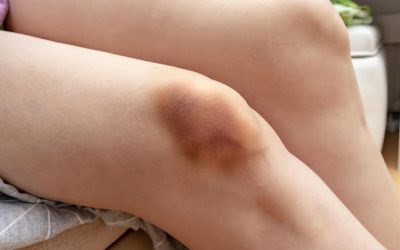Over time, excessive alcohol consumption increases a person’s risk of AD by 300%. People may have these accumulated risks, but they may have genetic or environmental factors that have a protective effect, and they never experience cognitive decline related to alcohol use. Those same factors, along with other health conditions, may put them at greater risk. Your provider will suggest treatments to https://sodo66vn.live/impaired-driving-facts-impaired-driving-3/ help you manage the symptoms you’re experiencing. But there’s no way to reverse the brain damage from alcohol-related dementia.
Assessment and diagnosis
These include a stroke, a bleed caused by physical trauma, or a tumour. The doctor will also do a full physical examination and take a detailed history of the person’s symptoms and how they are affecting their life. They should also take an account from someone who knows the person well, as this can help if the person has gaps in their memory.
There are some lifestyle behaviours with enough evidence to show that changing them will reduce your risk of dementia. People may also have motor difficulties due to impaired coordination and trouble walking, which can lead to safety concerns. If you or a loved one is living with alcohol-related dementia, it can be extremely difficult to cope with—personally and for the family. Excessive alcohol use for many years is linked to alcohol-related dementia, and some people can develop it more rapidly than others.
Care at Cleveland Clinic
But Justo and his team suggest this may be because heavy drinkers died 13 years earlier on average than those who never drank. The results also showed that heavy and former heavy drinkers had higher odds of developing tau tangles (41 percent and 31 percent higher odds, respectively). A person may consider joining support groups or attending counseling or therapy if alcohol use is impairing their quality of life in the short and long term. Around one in six American adults drink to excess, and almost half of the United States population drank alcohol in 2020.

Supporting a person with alcohol-related brain damage
Symptoms usually develop slowly over time, but some people notice changes suddenly. Which symptoms you experience will depend on which areas of your brain alcohol damages. If you’re worried about your drinking — or watching someone you love slip into forgetfulness, confusion, or personality changes — now is the time to act. Alcohol-related dementia doesn’t wait, and the longer it’s left untreated, the harder it becomes to reverse. In this article, we’ll uncover the surprising connections between alcohol and cognitive decline, explore the risks involved, and highlight treatment options that offer hope for recovery.
Which questions should I ask my healthcare provider?
However, people experiencing more severe alcohol abuse may need to be hospitalized or supervised in an inpatient treatment center. Addressing alcohol-related dementia requires a holistic approach that combines medical treatment, can drinking alcohol cause dementia financial planning, and educational resources. By taking advantage of available resources, you can ensure better care and support for those affected by this condition. The effects of alcohol on the brain have been a subject of concern for years, yet when it comes to dementia—a progressive disorder that affects memory, thinking, and social abilities—the link becomes more troubling. Let’s explore whether alcohol consumption can be a cause of dementia and delve into practical insights on this critical issue.
Sometimes, knowing what to expect and how others have managed challenges can help provide a source of comfort and community. Some people may develop behavioral symptoms or problems with memory and decision-making before experiencing motor effects of alcohol-related dementia, but the pattern of symptoms doesn’t necessarily follow a particular sequence. Additionally, alcohol can cause liver damage, which can lead to liver disease, increase the risk of liver cancer, and make it harder for the liver to filter out toxins from our blood and our system. Find out about Wernicke–Korsakoff syndrome, a condition caused by drinking too much alcohol, including information on symptoms, diagnosis and treatment. However, women who have ARBD tend to get it at a younger age than men, and after fewer years of alcohol misuse. This is because women are at a greater risk of the damaging effects of alcohol.
- He has interviewed doctors and pharmaceutical representatives in the U.S. and abroad.
- His work has been supported by multiple research training and career development grants from the National Institute of Neurological Disorders and Stroke and the American Academy of Neurology.
- It is caused by a person regularly drinking too much alcohol, or binge-drinking, over several years.
- Excessive drinking can cause long-term effects such as stroke, heart disease, and cancer.
They will need different kinds of support, which may not always be easy to access. After the first part of treatment, a person with alcohol-related ‘dementia’ will need support from different kinds of services. They may be treated with drugs that mimic the effect of alcohol on the brain to reduce withdrawal symptoms. The person will also be given fluids and salts, and high doses of thiamine (vitamin B1) by injection.
A 2016 study found that heavy drinking, equating to eight or more drinks per week, and drinking liquor increased cognitive decline among people with AD. It’s no secret that heavy drinking can hurt your mental and physical health in the Oxford House long run. But some experts say the lifestyle habit may be more harmful than anticipated — especially when it comes to the brain. Heavy drinking can lead to cognitive impairment, and in severe cases it can cause “alcohol-induced dementia,” says Amber Robins, MD, a double board-certified family and lifestyle medicine physician.

In closing, while alcohol can contribute to dementia, understanding the risks and focusing on preventive measures can substantially mitigate its impact. Whether through lifestyle adjustments or seeking external help, each step towards responsible living is a stride toward preserving cognitive health and ensuring a secure future. He has a nursing and business/technology degrees from The Johns Hopkins University. Hyaline arteriolosclerosis makes it harder for blood to flow, which can cause brain lesions. Dementia is a cognitive disease with many causes, symptoms, and stages. Gain expert insight into how common it is, how it’s diagnosed, current treatment options, and lifestyle changes that may improve quality of life.
- Drinking a large amount of alcohol in a short space of time (such as a single evening) is known as ‘binge-drinking’.
- Your provider will suggest treatments to help you manage the symptoms you’re experiencing.
- Recovery programs like those at Ray Recovery offer hope and support to help individuals rebuild cognitive function and regain quality of life.
- Let’s explore whether alcohol consumption can be a cause of dementia and delve into practical insights on this critical issue.
Some patients presented with alcoholism as the first symptom, preceding other cognitive or behavioral changes. If a person regularly drinks too much alcohol it can be toxic to their nerve cells. Over time, drinking too much alcohol can cause brain cells to die and a person’s brain tissue to shrink. This means there are fewer cells to carry the messages that the brain needs to do different tasks.
